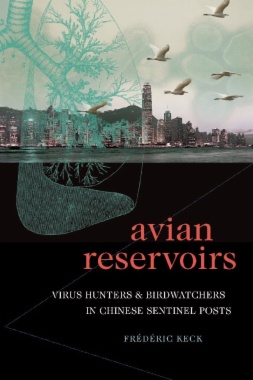After experiencing the SARS outbreak in 2003, Hong Kong, Singapore, and Taiwan all invested in various techniques to mitigate future pandemics involving myriad cross-species interactions between humans and birds. In some locations microbiologists allied with veterinarians and birdwatchers to follow the mutations of flu viruses in birds and humans and create preparedness strategies, while in others, public health officials worked toward preventing pandemics by killing thousands of birds. In Avian Reservoirs Frédéric Keck offers a comparative analysis of these responses, tracing how the anticipation of bird flu pandemics has changed relations between birds and humans in China. Drawing on anthropological theory and ethnographic fieldwork, Keck demonstrates that varied strategies dealing with the threat of pandemics—stockpiling vaccines and samples in Taiwan, simulating pandemics in Singapore, and monitoring viruses and disease vectors in Hong Kong—reflect local geopolitical relations to mainland China. In outlining how interactions among pathogens, birds, and humans shape the way people imagine future pandemics, Keck illuminates how interspecies relations are crucial for protecting against such threats.
- Cover
- Contents
- Acknowledgments
- Introduction
- Part I: Animal Diseases
- Chapter One: Culling, Vaccinating, and Monitoring Contagious Animals
- Chapter Two: Biosecurity Concerns and the Surveillance of Zoonoses
- Chapter Three: Global Health and the Ecologies of Conservation
- Part II: Techniques of Preparedness
- Chapter Four: Sentinels and Early Warning Signals
- Chapter Five: Simulations and Reverse Scenarios
- Chapter Six: Stockpiling and Storage
- Conclusion
- Notes
- Bibliography
- Index

